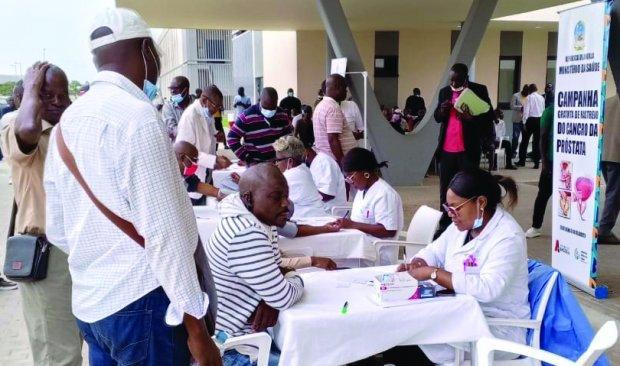Africa-Press – Angola. Rectal examination, one of the procedures used by urologists to diagnose prostate cancer, is scaring men over 45 away from screening appointments for the disease, revealed Friday the urologist at the Lubango Central Hospital, in Huíla.Domingos Sacato lamented the fact that there is still a lot of taboo among patients about rectal examinations, despite several awareness campaigns to highlight the importance of early diagnosis of the disease, which continues to claim several lives in the province. “Despite the improvements, as a result of constant awareness-raising actions, unfortunately there is still a lot of taboo surrounding rectal examinations. This act leads many men to not seek consultations and others to give up treatment. Most believe that their masculinity will decrease after the examination”, he said.
The specialist reported that of the 100 patients suspected of having prostate cancer, after screening 800 men during last year’s Blue November Campaign, carried out by the Central Hospital, none of them returned for the appropriate medical follow-up.
In 2023, he added, 800 men attended screening campaigns. Of this number, he stressed, one hundred were suspected of having prostate cancer. “The diagnosis required a prostate biopsy, but unfortunately most patients did not return for consultations.”
The digital rectal exam, he explained, is a standard procedure used by doctors to diagnose diseases related to the digestive system. “If the patient has not defecated for three or more days, the first exam is a digital rectal exam. The rectum is the terminal part of the digestive system. It is not only the urologist who performs it to diagnose cancer, but other doctors also perform it to diagnose abscesses or prostatitis,” he said.
The doctor said that the hospital is currently carrying out the Blue November Campaign again, as a way of identifying patients who may have prostate cancer in good time, at a time when the Emergency Department is registering many cases of patients in the terminal phase.
“We want to screen as many patients as possible for the simple fact that there are many cases of prostate cancer in the Emergency Department and in routine consultations. Many patients are diagnosed late and end up dying two to three days later, because they arrive at an advanced stage of the disease,” he lamented.
For More News And Analysis About Angola Follow Africa-Press






